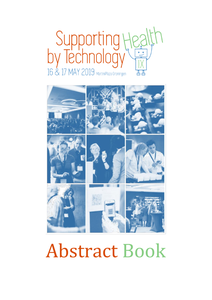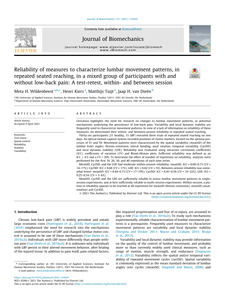This study investigated to what degree lesson-to-lesson variability in teachers' goal clarification and process feedback explains variability in secondary students’ motivational correlates. Students (N=570, 24 classes) completed questionnaires at six occasions. Multilevel regression analyses showed that relations between perceived process feedback and experienced need satisfaction (i.e., competence, autonomy and relatedness) were conditional on perceived goal clarification. No such interaction effects between process feedback and goal clarification were found for need frustration (i.e., experiencing failure, feeling pushed to achieve goals, feeling rejected). In general, when students perceived more process feedback or goal clarification, students experienced more competence, autonomy and relatedness satisfaction. Yet, when perceiving very high levels of process feedback, additional benefits of goal clarification were no longer present (and vice versa). In lessons in which students perceived goals to be less clear, they experienced more need frustration. No associations were found between process feedback and need frustration.
DOCUMENT

Occupational stress can cause all kinds of health problems. Resilience interventions that help employees deal with and adapt to adverse events can prevent these negative consequences. Due to advances in sensor technology and smartphone applications, relatively unobtrusive self-monitoring of resilience-related outcomes is possible. With models that can recognize intra-individual changes in these outcomes and relate them to causal factors within the employee’s own context, an automated resilience intervention that gives personalized, just-in-time feedback can be developed. The Wearables and app-based resilience Modelling in employees (WearMe) project aims to develop such models. A cyclical conceptual framework based on existing theories of stress and resilience is presented, as the basis for the WearMe project. The included concepts are operationalized and measured using sleep tracking (Fitbit Charge 2), heart rate variability measurements (Elite HRV + Polar H7) and Ecological Momentary Assessment (mobile app), administered in the morning (7 questions) and evening (12 questions). The first (ongoing) study within the WearMe project investigates the feasibility of the developed measurement cycle and explores the development of such models in social studies students that are on their first major internship. Analyses will target the development of both within-subject (n=1) models, as well as between-subjects models. The first results will be shared at the Health By Tech 2019 conference in Groningen. If successful, future work will focus on further developing these models and eventually exploring the effectiveness of the envisioned personalized resilience system.
DOCUMENT

Research into automatic text simplification aims to promote access to information for all members of society. To facilitate generalizability, simplification research often abstracts away from specific use cases, and targets a prototypical reader and an underspecified content creator. In this paper, we consider a real-world use case – simplification technology for use in Dutch municipalities – and identify the needs of the content creators and the target audiences in this scenario. The stakeholders envision a system that (a) assists the human writer without taking over the task; (b) provides diverse outputs, tailored for specific target audiences; and (c) explains the suggestions that it outputs. These requirements call for technology that is characterized by modularity, explainability, and variability. We argue that these are important research directions that require further exploration
MULTIFILE

Literature highlights the need for research on changes in lumbar movement patterns, as potential mechanisms underlying the persistence of low-back pain. Variability and local dynamic stability are frequently used to characterize movement patterns. In view of a lack of information on reliability of these measures, we determined their within- and between-session reliability in repeated seated reaching. Thirty-six participants (21 healthy, 15 LBP) executed three trials of repeated seated reaching on two days. An optical motion capture system recorded positions of cluster markers, located on the spinous processes of S1 and T8. Movement patterns were characterized by the spatial variability (meanSD) of the lumbar Euler angles: flexion–extension, lateral bending, axial rotation, temporal variability (CyclSD) and local dynamic stability (LDE). Reliability was evaluated using intraclass correlation coefficients (ICC), coefficients of variation (CV) and Bland-Altman plots. Sufficient reliability was defined as an ICC ≥ 0.5 and a CV < 20%. To determine the effect of number of repetitions on reliability, analyses were performed for the first 10, 20, 30, and 40 repetitions of each time series. MeanSD, CyclSD, and the LDE had moderate within-session reliability; meanSD: ICC = 0.60–0.73 (CV = 14–17%); CyclSD: ICC = 0.68 (CV = 17%); LDE: ICC = 0.62 (CV = 5%). Between-session reliability was somewhat lower; meanSD: ICC = 0.44–0.73 (CV = 17–19%); CyclSD: ICC = 0.45–0.56 (CV = 19–22%); LDE: ICC = 0.25–0.54 (CV = 5–6%). MeanSD, CyclSD and the LDE are sufficiently reliable to assess lumbar movement patterns in single-session experiments, and at best sufficiently reliable in multi-session experiments. Within-session, a plateau in reliability appears to be reached at 40 repetitions for meanSD (flexion–extension), meanSD (axial-rotation) and CyclSD.
MULTIFILE

Background To gain insight into the role of plantar intrinsic foot muscles in fall-related gait parameters in older adults, it is fundamental to assess foot muscles separately. Ultrasonography is considered a promising instrument to quantify the strength capacity of individual muscles by assessing their morphology. The main goal of this study was to investigate the intra-assessor reliability and measurement error for ultrasound measures for the morphology of selected foot muscles and the plantar fascia in older adults using a tablet-based device. The secondary aim was to compare the measurement error between older and younger adults and between two different ultrasound machines. Methods Ultrasound images of selected foot muscles and the plantar fascia were collected in younger and older adults by a single operator, intensively trained in scanning the foot muscles, on two occasions, 1–8 days apart, using a tablet-based and a mainframe system. The intra-assessor reliability and standard error of measurement for the cross-sectional area and/or thickness were assessed by analysis of variance. The error variance was statistically compared across age groups and machines. Results Eighteen physically active older adults (mean age 73.8 (SD: 4.9) years) and ten younger adults (mean age 21.9 (SD: 1.8) years) participated in the study. In older adults, the standard error of measurement ranged from 2.8 to 11.9%. The ICC ranged from 0.57 to 0.97, but was excellent in most cases. The error variance for six morphology measures was statistically smaller in younger adults, but was small in older adults as well. When different error variances were observed across machines, overall, the tablet-based device showed superior repeatability. Conclusions This intra-assessor reliability study showed that a tablet-based ultrasound machine can be reliably used to assess the morphology of selected foot muscles in older adults, with the exception of plantar fascia thickness. Although the measurement errors were sometimes smaller in younger adults, they seem adequate in older adults to detect group mean hypertrophy as a response to training. A tablet-based ultrasound device seems to be a reliable alternative to a mainframe system. This advocates its use when foot muscle morphology in older adults is of interest.
MULTIFILE

Purpose Non-technical skills have gained attention, since enhancement of these skills is presumed to improve the process of trauma resuscitation. However, the reliability of assessing non-technical skills is underexposed, especially when using video analysis. Therefore, our primary aim was to assess the reliability of the Trauma Non-Technical Skills (T-NOTECHS) tool by video analysis. Secondarily, we investigated to what extent reliability increased when the T-NOTECHS was assessed by three assessors [average intra-class correlation (ICC)] instead of one (individual ICC). Methods As calculated by a pre-study power analysis, 18 videos were reviewed by three research assistants using the T-NOTECHS tool. Average and individual degree of agreement of the assessors was calculated using a two-way mixed model ICC. Results Average ICC was ‘excellent’ for the overall score and all five domains. Individual ICC was classified as ‘excellent’ for the overall score. Of the five domains, only one was classified as ‘excellent’, two as ‘good’ and two were even only ‘fair’. Conclusions Assessment of non-technical skills using the T-NOTECHS is reliable using video analysis and has an excellent reliability for the overall T-NOTECHS score. Assessment by three raters further improve the reliability, resulting in an excellent reliability for all individual domains.
DOCUMENT

BACKGROUND: Ambulatory children with Spina Bifida (SB) often show a decline in physical activity leading to deconditioning and functional decline. Therefore, assessment and promotion of physical activity is important. Because energy expenditure during activities is higher in these children, the use of existing pediatric equations to predict physical activity energy expenditure (PAEE) may not be valid. AIMS: (1) To evaluate criterion validity of existing predictions converting accelerocounts into PAEE in ambulatory children with SB and (2) to establish new disease-specific equations for PAEE. METHODS: Simultaneous measurements using the Actical, the Actiheart, and indirect calorimetry took place to determine PAEE in 26 ambulatory children with SB. DATA ANALYSIS: Paired T-tests, Intra-class correlations limits of agreement (LoA), and explained variance (R2) were used to analyze validity of the prediction equations using true PAEE as criterion. New equations were derived using regression techniques. RESULTS: While T-tests showed no significant differences for some models, the predictions developed in healthy children showed moderate ICC’s and large LoA with true PAEE. The best regression models to predict PAEE were: PAEE = 174.049 + 3.861 × HRAR – 60.285 × ambulatory status (R2 = 0.720) and PAEE = 220.484 + 0.67 × Actical counts – 60.717 × ambulatory status (R2 = 0.681). CONCLUSIONS: Existing equations to predict PAEE are not valid for use in children with SB for the individual evaluation of PAEE. The best regression model was based on HRAR in combination with ambulatory status, followed by a new model for the Actical monitor. A benefit of HRAR is that it does not require the use of expensive accelerometry equipment. Further cross-validation of these models is still needed.
DOCUMENT

DOCUMENT

Although stressors are frequently linked to several negative health outcomes, experiencing stressors may be necessary for enhancing performance. At present, the literature is lacking a unified, comprehensive framework that accounts for both positive and negative outcomes following stressors. Therefore, we introduce the framework of hormesis, which has been applied in biological research for decades. According to hormesis, small-to-medium doses of a stressor can stimulate an organism's response, while large doses cause detrimental effects. In this article, we argue that these dose-response dynamics can be found in various domains of performance psychology (i.e., eustress and distress, psychological momentum, emotions, motivation, confidence, cognitive performance, training, skill acquisition, adversity, and trauma). Furthermore, hormesis also accounts for the inter- and intra-individual variability commonly found in responses to stressors. Finally, from an applied perspective, leveraging hormesis may stimulate new psychological interventions that mimic the well-known effects of (toxic) vaccinations at the level of behavior.
DOCUMENT

Occupational stress can cause health problems, productivity loss or absenteeism. Resilience interventions that help employees positively adapt to adversity can help prevent the negative consequences of occupational stress. Due to advances in sensor technology and smartphone applications, relatively unobtrusive self-monitoring of resilience-related outcomes is possible. With models that can recognize intra-individual changes in these outcomes and relate them to causal factors within the employee's context, an automated resilience intervention that gives personalized, just-in-time feedback can be developed. This paper presents the conceptual framework and methods behind the WearMe project, which aims to develop such models. A cyclical conceptual framework based on existing theories of stress and resilience is presented as the basis for the WearMe project. The operationalization of the concepts and the daily measurement cycle are described, including the use of wearable sensor technology (e.g., sleep tracking and heart rate variability measurements) and Ecological Momentary Assessment (mobile app). Analyses target the development of within-subject (n=1) and between-subjects models and include repeated measures correlation, multilevel modelling, time series analysis and Bayesian network statistics. Future work will focus on further developing these models and eventually explore the effectiveness of the envisioned personalized resilience system.
DOCUMENT
